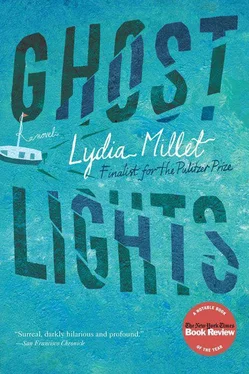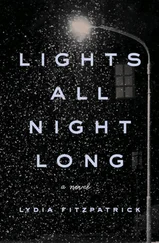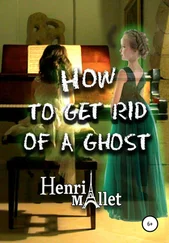Lydia Millet - Ghost Lights
Здесь есть возможность читать онлайн «Lydia Millet - Ghost Lights» весь текст электронной книги совершенно бесплатно (целиком полную версию без сокращений). В некоторых случаях можно слушать аудио, скачать через торрент в формате fb2 и присутствует краткое содержание. Издательство: W. W. Norton & Company, Жанр: Современная проза, на английском языке. Описание произведения, (предисловие) а так же отзывы посетителей доступны на портале библиотеки ЛибКат.
- Название:Ghost Lights
- Автор:
- Издательство:W. W. Norton & Company
- Жанр:
- Год:неизвестен
- ISBN:нет данных
- Рейтинг книги:5 / 5. Голосов: 1
-
Избранное:Добавить в избранное
- Отзывы:
-
Ваша оценка:
- 100
- 1
- 2
- 3
- 4
- 5
Ghost Lights: краткое содержание, описание и аннотация
Предлагаем к чтению аннотацию, описание, краткое содержание или предисловие (зависит от того, что написал сам автор книги «Ghost Lights»). Если вы не нашли необходимую информацию о книге — напишите в комментариях, мы постараемся отыскать её.
How the Dead Dream
Ghost Lights
Ghost Lights
Ghost Lights — читать онлайн бесплатно полную книгу (весь текст) целиком
Ниже представлен текст книги, разбитый по страницам. Система сохранения места последней прочитанной страницы, позволяет с удобством читать онлайн бесплатно книгу «Ghost Lights», без необходимости каждый раз заново искать на чём Вы остановились. Поставьте закладку, и сможете в любой момент перейти на страницу, на которой закончили чтение.
Интервал:
Закладка:
The dive would last about a half-hour, they had told him. He would stay close by her. She would point at things.
As they held steady side by side about fifteen feet beneath the surface he found himself entranced, not only by her but by the corals and the fishes. Beneath them and around them — he had to be careful not to brush up against the coral, hit a sharp urchin or a stinging anemone — there were formations like brains and antlers, sponges and intestinal tubes and lace and leaves of lettuce. Among them the fish swam, some hunkering low and inside, others flittering lightly along edges. Gretel touched his shoulder and they looked down together at a speckled, dun-colored fish on the bottom half covered in sand, bloated and with spikes on it. Some kind of blowfish or puffer, he guessed. They ate them in Japan. Flat, tall fish that were a deep purple-blue with a line of bright yellow moved past him in stately elegance.
He thought how Casey would love all this. He would describe it to her when he got home. She had seen photographs, had watched Jacques Cousteau and the like, but she would never know how it felt to be here, the buoyancy. How everything seemed to move slower, with a silence that changed the world. Time, even. He felt a quick wrench of longing, worry and regret — what he always felt, when he recalled her and was not in her company. The guilt for not being there, actually, among other impulses. . not that she wanted him there. He was only a father.
When they were small you were everything to them, then they grew up and you dwindled into next to nothing. . she liked underwater scenes, had drawn them often when she was a little girl. He remembered her pictures in felt-tip pen: mermaids hovering beside straggly green seaweeds, mermaids with dots for breasts and large scales along their tails and yellow hair. She had believed that underwater was a kingdom where she would be welcome — where she could move like a fish, move like fluid itself.
She would have seen Gretel back then, when she was six years old, and thought she was beholding a mermaid.
Hans was also still in view, though just barely. He was always diving, scouting, always searching for something. Hans was not content to float and look, unlike Hal and Gretel.
Hal was watching a fish nibble at the coral, listening to the sound of many of them eating, like the pop-pop-pop of milk in rice cereal, all over in the background, when she suddenly grabbed him by the upper arm and turned him. They were surrounded by silver, or at least there was nothing but silver in front of them. It was a vast school, thousands. Small, moving in silver flickers, hundreds of them switching angles in the same pulse of motion, instantly. He was astonished by it, how hundreds or thousands moved in a flash, as one body. It seemed impossible.
Then he was startled, almost breathed through his nose feeling Gretel’s hand move over the arm of his wetsuit with something akin to tenderness — was there intent in the touch? He could almost believe it. But it was through the wetsuit. Most likely she had just forgotten to let go. Both of them gazed at the flanks of the fish — the gleaming, moving-as-one legions. He thought they could never be like this, people. Never. Was she thinking it too? With her hand on his arm. It was the two of them, suspended, the rest of the world far above and in the dryness of air — nothing like this below, these silver thousands.
Finally the school thinned and dispersed, left them gazing out into a fading blue abyss. At some point her hand was gone from his arm, which he also regretted. He felt cold despite the wetsuit.
It was not their place, after all. They were here only by the grace of machines.
He had forgotten to check his tank and lost track of his oxygen, but luckily she was on top of it. She showed him her gauge and made a thumbs-up signal, which he thought at first meant everything was OK. In fact it was the signal to return to the surface, which he recalled a second later from their safety lesson. She was already rising slowly, and he watched her for a while before he went up too.
•
On the island where they went to eat lunch there were too many tourists crowded onto a slight, barren finger of sand. Many small boats were anchored, wave-slapped and bobbing, on the windward side, while on the lee side all he could see was a field of snorkels sticking out of the shallow water, black and day-glo yellow and fluorescent pink. Seagulls had splattered white onto the rocks and benches all around; there were bathrooms and some low shelters over picnic tables. On one end of the island were a few tall, thin palms, scraping and flapping their dried fronds in the breeze.
The neurotic bohemians found the last empty picnic table in the shade, unwrapped the packed lunches the divemaster handed them from a plastic cooler, then talked in low voices about how there was nothing in them they could stand to eat. The woman was a vegetarian, the man was lactose-intolerant.
Hal sat at the other end of the table with Hans and Gretel. He was ravenous. He wanted to order the neurotic bohemians to hand over their portions; he wanted to tower over them and scoop up their sandwiches into his gaping maw. Instead he quietly ate his own ham-and-cheese and listened to Hans enthuse to the divemaster about a sea cucumber.
Apparently, when alarmed, they could extrude their intestines.
Gretel was impatient to see lemon sharks so after a minute Hal got up from the table, left the neurotic bohemians and Hans and the divemaster and followed her with the final crust of his sandwich in hand as she walked along the lapping edge of the water. You could walk from one end of the island to the other in five minutes and soon they found the sharks, circling again and again in less than a foot of water. They were small, just a couple of feet long, and being fed by tourists, who tossed in fragments from their own bagged lunches.
Gretel shook her head, worried.
“It is not natural,” she said.
Germans hated it when things were not natural. Hal remembered this from college philosophy. Heidegger or something.
“Sharks have strong stomachs,” he improvised, straining to recall any actual facts. Natural history was not a strong suit, despite his years of watching Nature with Casey. “Great whites have been found with oil barrels in their digestive tracts. Rusty engines. I doubt a few Fig Newtons are going to hurt them.”
“But these are not great whites,” said Gretel, and squatted down on her haunches to see them more closely. “Look! They are like little babies.”
A few paces away the divemaster was already gesturing at them: it was time to head back to the boat. Gretel left the so-called baby sharks reluctantly.
On the windward beach again, lagging behind the rest of the group, Hal looked out beyond the boats and saw a small skiff cruise by, a thin, bearded man standing in the front of the boat leaning into the wind with raised binoculars, one bent leg braced against the prow like a sea captain in books of yore. Hal tried to recall where in the hotel he’d run into him. Then the bohemian woman screeched. She was barefoot and had stepped on a bottle cap.
“You could get lockjaw,” said the bohemian man.
• • • • •
Back at the hotel the Germans pressed him into service for dinner also, as though he could not be trusted to be left on his own. Their two boys left the table in a rush once they had bolted their kiddie menus, running outside to continue the ping-pong tournament.
“We must get organized for tomorrow,” said Hans. “We have the map. I have made many copies. We have many copies also of the photograph of Mr. Stern. The hotel is having them laminated.”
“Nothing left for me to do then, really,” said Hal. “Is there.”
Читать дальшеИнтервал:
Закладка:
Похожие книги на «Ghost Lights»
Представляем Вашему вниманию похожие книги на «Ghost Lights» списком для выбора. Мы отобрали схожую по названию и смыслу литературу в надежде предоставить читателям больше вариантов отыскать новые, интересные, ещё непрочитанные произведения.
Обсуждение, отзывы о книге «Ghost Lights» и просто собственные мнения читателей. Оставьте ваши комментарии, напишите, что Вы думаете о произведении, его смысле или главных героях. Укажите что конкретно понравилось, а что нет, и почему Вы так считаете.












